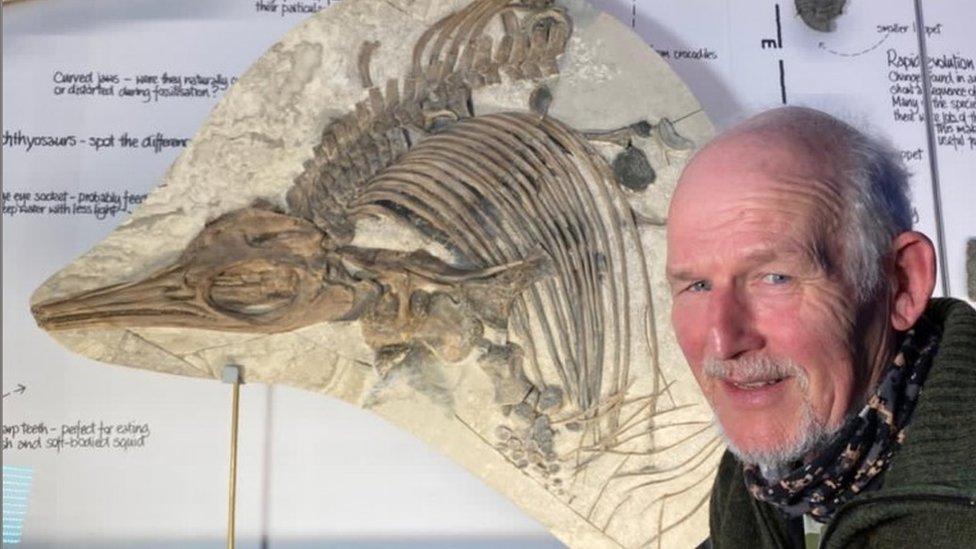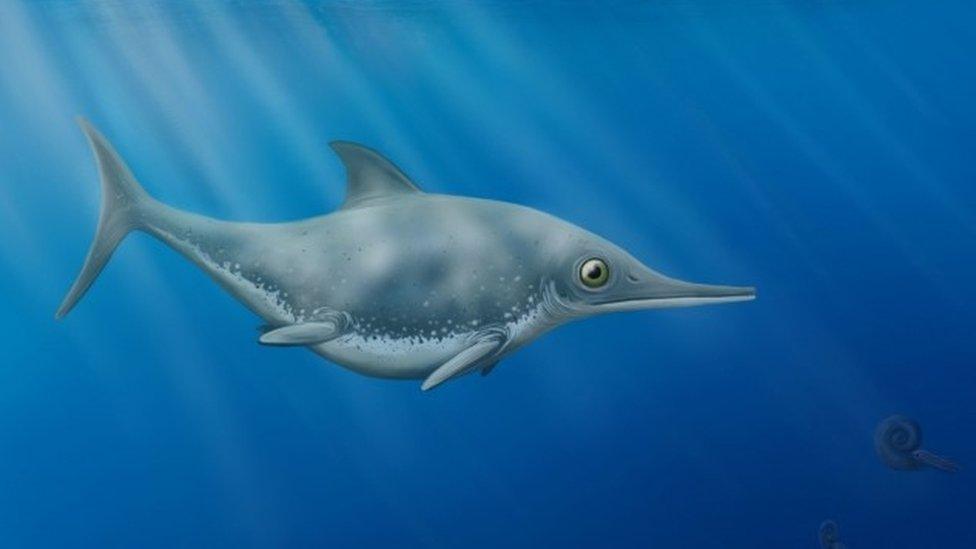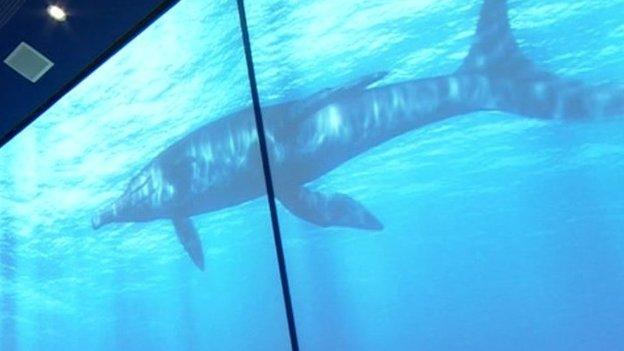New species of ichthyosaur found on Dorset's Jurassic Coast
- Published

Fossil collector Dr Steve Etches found the ichthyosaurus buried head-first in limestone
A fossil of a sea reptile dating back 150 million years has been unearthed on Dorset's Jurassic Coast.
The ichthyosaurus was discovered by amateur collector, Dr Steve Etches, buried head-first in limestone on the shore near Kimmeridge Bay.
After noticing its abundance of teeth he gave it to palaeontologists at the University of Portsmouth who identified it as a new genus and species.
The specimen has been named Thalassodraco etchesi after Dr Etches.
'Very exciting'
Dr Etches, a plumber by trade, said: "I'm very pleased that this ichthyosaur has been found to be new to science, and I'm very honoured for it to be named after me."
Researchers at the university found the fossil was "in exceptional condition and even some of its soft tissues were preserved".
Masters student Megan Jacobs, who identified it, said: "Being given the chance to describe this ichthyosaur was a real privilege.
"Skeletons of late Jurassic ichthyosaurs in the UK are extremely rare, after comparing it with those known from other late Jurassic deposits around the world, and not being able to find a match was very exciting."

An artist's impression of the new ichthyosaur
Researchers discovered it had hundreds of tiny, delicate, smooth teeth, an unusually deep ribcage and small flippers, and may have swum with a "distinctive style from other ichthyosaurs".
The university said the find is the UK's fifth known ichthyosaur from the late Jurassic era, and the smallest so far at (6ft) 2m-long.
The specimen is on display at Dr Etches's lottery-funded museum in Kimmeridge, the Etches Collection, which houses the many discoveries he's made over a lifetime of fossil hunting.
Dr Etches received an MBE for services to palaeontology and, in 2017, an honorary doctorate from the University of Southampton. He had previously held his collection in his garage.
The university findings on the fossil have been published in the online journal PLOS One.
Related topics
- Published23 November 2020

- Published17 October 2020

- Published21 October 2016
